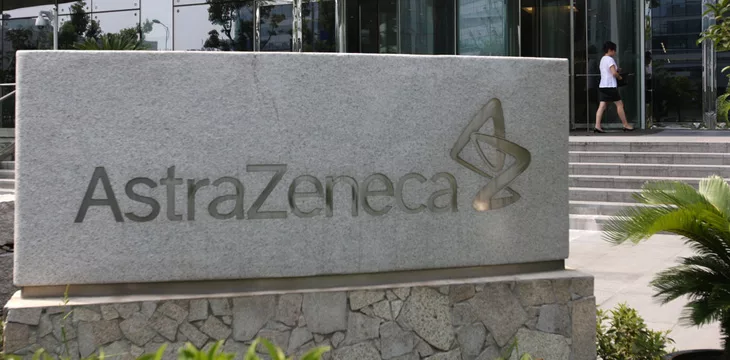|
Getting your Trinity Audio player ready...
|
Pharmaceutical firm AstraZeneca (NASDAQ: AZNCF) has partnered with artificial intelligence (AI) biologics company Absci (NASDAQ: ABSI) to research an antibody designed to fight cancer cells.
The collaboration will see both firms use a “zero-shot” generative AI model to create and experiment with antibodies to treat cancers, according to the Financial Times report. The two will build on existing antibody therapeutics, with parties confirming that integration with AI could yield impressive results.
AstraZeneca is expected to invest $247 million in AI-backed cancer research over multiple years. Available details indicate that the COVID-19 vaccine maker will pay Absci an upfront fee alongside milestone payments throughout the research.
“AI is enabling us to not only increase the success and speed of our biologics discovery process, but also enhance the diversity of the biologics we discover,” said AstraZeneca Senior Vice President Puja Sapra.
Leveraging Absci’s deep experience with generative AI tools in pharmaceutical processes, executives of both companies have expressed optimism for the future of cancer treatment. Absci has 15 active programs ranging from strategic partnerships to internal pipeline candidates, generating 3 billion protein-protein interaction data weekly.
The AI-based research firm’s vision is to create new drugs “at the click of a button,” harnessing AI and synthetic biology to change the pharmaceutical landscape.
“We’re proud to work closely with AstraZeneca to leverage our AI to bring novel treatments to oncology patients,” said Absci CEO Sean McClain.
It remains unclear which type of cancers will be involved in the research, but experts are predicting a focus on breast cancer given the extent of AI research in the field. In August, Google (NASDAQ: GOOGL) struck a partnership with medical technology firm iCAD to integrate AI in breast cancer diagnosis, reducing incidents of false positives and improving efficiency.
Proponents are pushing for blockchain integration in medical research to ensure data accuracy, protection, and immutability for efficiency.
AI in pharmaceuticals
Researchers at ETH Zurich have experimented with an AI model that can produce new pharmaceutical ingredients in record time without resorting to the typical “trial-and-error methods.”
In Hong Kong, medical researchers are turning to AI to prevent antibiotic resistance following a rise in superbug infections. The Hong Kong Hospital Authority will proceed with an AI pilot to spot infection trends and the correlation with resistance.
Meta (NASDAQ: META) has joined the fray with a valiant attempt to use AI to generate images from monitoring brain activity, which it says could be a “stepping stone toward non-invasive brain-computer interfaces” while helping disabled individuals communicate their thoughts.
In order for artificial intelligence (AI) to work right within the law and thrive in the face of growing challenges, it needs to integrate an enterprise blockchain system that ensures data input quality and ownership—allowing it to keep data safe while also guaranteeing the immutability of data. Check out CoinGeek’s coverage on this emerging tech to learn more why Enterprise blockchain will be the backbone of AI.
Watch: Blockchain & AI unlock possibilities

 02-12-2026
02-12-2026 




